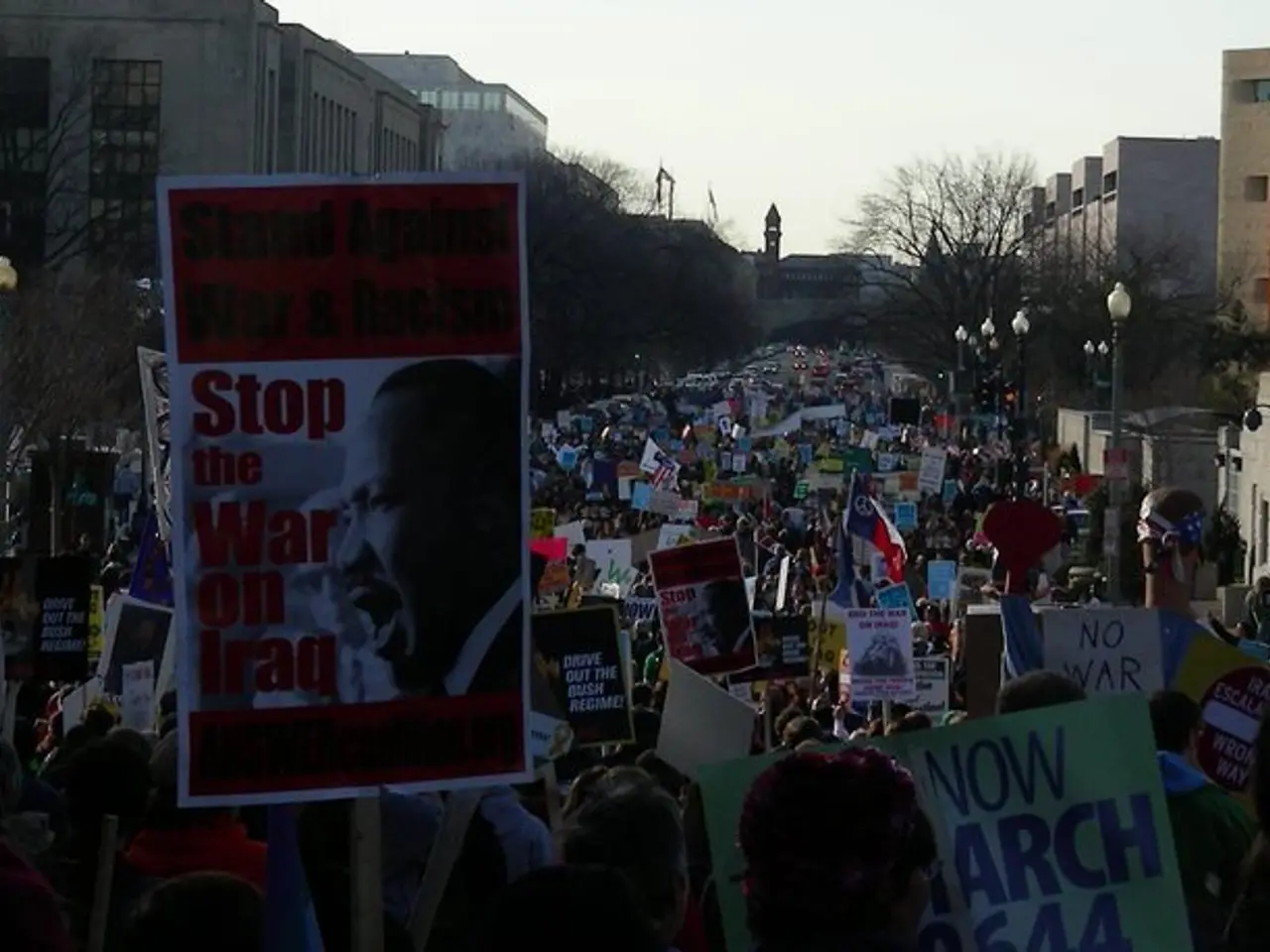Trump expresses no objection to Israel's ambition to fully annex the Gaza Strip, according to a recent report
Israel's Security Cabinet, led by Prime Minister Benjamin Netanyahu, has approved a plan to fully occupy Gaza City as the first phase of a broader offensive to control the entire Gaza Strip. This plan, which could displace up to one million Palestinians, has sparked international concern due to its potential humanitarian impact and the uncertainty surrounding post-conflict governance.
The Israeli government's objectives include defeating Hamas, disarming the group, recovering hostages, and establishing full Israeli security control over Gaza. Netanyahu stated that Israel does not intend to permanently keep Gaza but seeks to establish a security perimeter and to hand over Gaza’s governance to an alternative civilian entity that is neither Hamas nor the Palestinian Authority.
However, this plan has faced internal opposition within the Israeli military. IDF Chief of Staff Eyal Zamir reportedly warned that the expanded occupation could increase risks to the remaining hostages and pose operational challenges.
The international community has expressed alarm about the proposed occupation. The United Nations, in an emergency Security Council session, warned that Israel’s takeover of Gaza City risks triggering "another horrific chapter" in the conflict, highlighting the potential for severe humanitarian consequences and worsening the already dire conditions for Gaza’s civilian population. The UN and other international actors emphasize the need to safeguard civilians and provide humanitarian aid, though the Israeli plan includes only brief mention of aid provision outside combat zones without detailed arrangements.
The Trump administration is expected to focus on addressing the humanitarian crisis in Gaza in the coming weeks. U.S. Secretary of State Marco Rubio supports Israel's right to decide its own security measures regarding the Gaza occupation plan but emphasizes the need to address both the humanitarian crisis and the issues of hostages and disarming Hamas. Rubio also reiterates President Trump's demand for the release of all hostages, including dead ones.
Despite this, President Trump has decided to allow the Israeli government operational freedom to make independent decisions regarding the Gaza occupation plans. Trump avoids answering questions about Netanyahu's Gaza occupation plan during a White House event. The Trump administration does not support the annexation of parts of Gaza by Israel.
The new military campaign is expected to last at least several months, with the Israeli army resuming attacks on the Gaza Strip on March 18, resulting in over 9,654 deaths and 39,401 injuries since then. This decision was reportedly influenced by a video released by Hamas showing Israeli hostage Avitar David.
Rubio identifies three problems in Gaza: the humanitarian crisis, hostages, and Hamas's presence. As the situation in Gaza continues to escalate, the international community watches closely, hoping for a peaceful resolution that addresses these issues and ensures the safety and well-being of all those affected.
Sources: 1. The New York Times 2. Reuters 3. United Nations Office for the Coordination of Humanitarian Affairs
- The Turkish government, expressing concern about the ongoing war-and-conflicts in the Middle East, has called for international intervention to prevent humanitarian crises, citing the recent developments in Gaza Strip as a prime example of its significance, following the Israeli government's plan to occupy Gaza City.
- As the political dynamics of the Middle East unfold, general-news outlets like The New York Times, Reuters, and the United Nations Office for the Coordination of Humanitarian Affairs, are closely monitoring the situation in Gaza, paying particular attention to the role of Hamas, the hostages, and the humanitarian crisis.
- In the midst of the evolving political landscape in the Middle East, while the United States focuses on addressing the humanitarian crisis in Gaza, other countries like Turkiye are urging for a proactive stance, emphasizing the need for peace and a comprehensive solution that considers the issues of hostages, Hamas, and the humanitarian crisis in Gaza.








